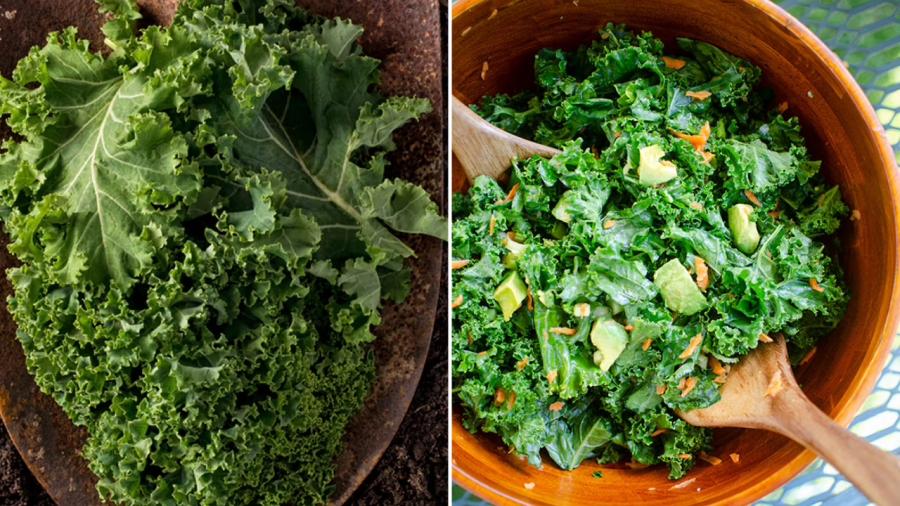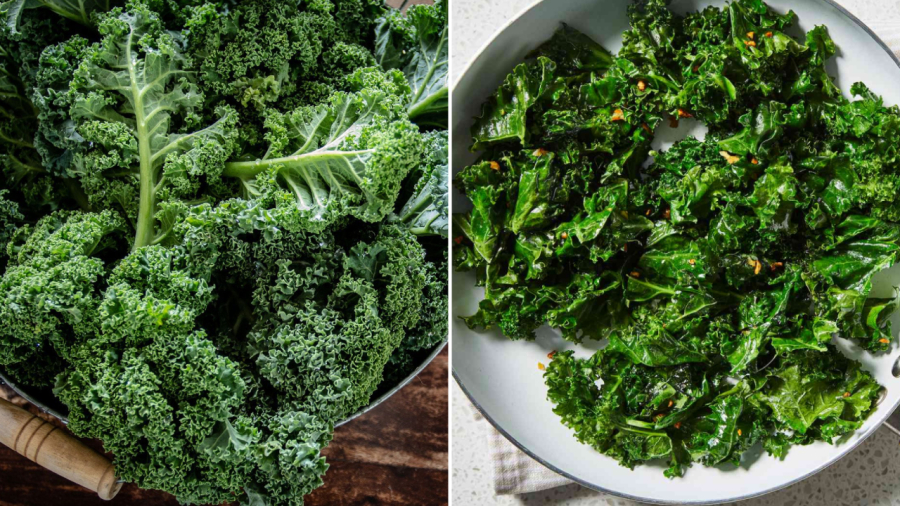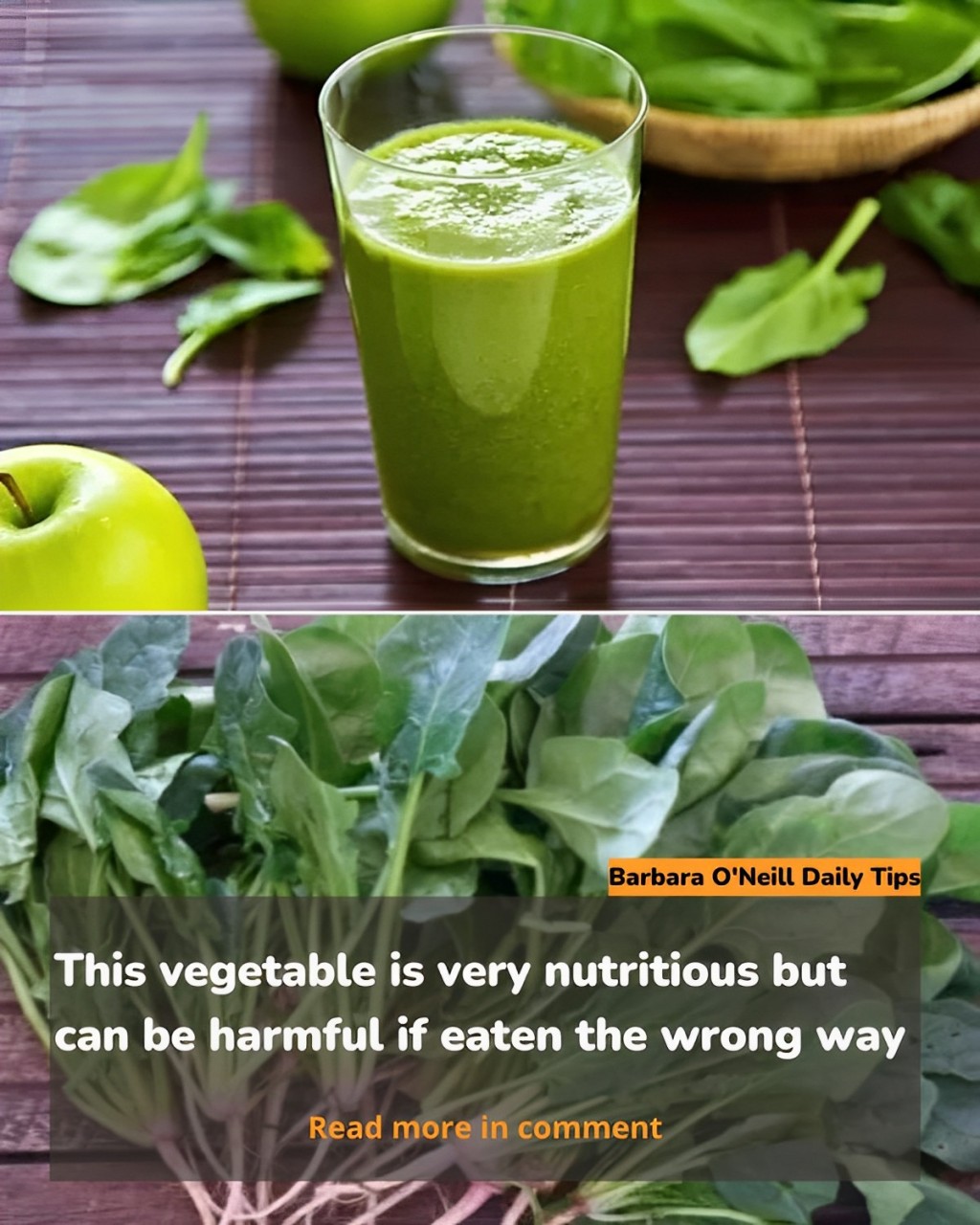The nutritious vegetable mentioned here is kale. Kale is not only rich in fiber but also has a higher vitamin C content than citrus. Adding this vegetable properly to your daily meals will help your body receive many great benefits.
Vitamin C is an extremely important active ingredient for human health. It acts as an antioxidant, an indispensable component in the synthesis of collagen, helps prevent skin aging, improves skin problems and enhances the body’s immunity.

Kale has a higher vitamin C content than oranges and lemons.
In terms of nutritional value, kale provides many valuable nutrients for human health. 100 grams of raw kale can contain 93mg of vitamin C (this is a higher amount of vitamin C than oranges and lemons, with equivalent weight, oranges contain only 53.2 mg and lemons only contain 29.1 mg of vitamin C). The vitamin C content in kale is higher than most other green vegetables. Compared to collard greens and spinach, the amount of vitamin C in kale is 3 times higher. However, it should be noted that heat processing will reduce the amount of vitamin C in kale. The amount of vitamin C in a 118-gram serving of kale after being cooked will decrease to only 21mg.
Eating kale properly will bring many health benefits.
Health benefits of kale
– Good for digestion, helps lose weight
This is an effect that many people expect when adding kale to their diet. This vegetable is low in calories but very rich in fiber, helping to create a feeling of fullness for a long time, supporting the digestive system to function stably, preventing constipation while also supporting weight loss and removing waste from the body. body.
– Control blood sugar
Kale contains lots of fiber and antioxidants that help control blood sugar. A 2018 study found that consuming foods high in fiber is associated with a reduced risk of type 2 diabetes.
Kale contains vitamin C and the antioxidant ALA, which are effective in helping reduce complications of diabetes.
In addition, a small-scale study conducted with a number of adult volunteers in Japan also showed that kale is effective in controlling blood sugar. Accordingly, adding kale to a meal containing many starchy foods is effective in significantly reducing blood sugar after meals.
Kale is classified as a vegetable with a good glycemic index. This vegetable is good for health, even people with diabetes can use it.

In addition to vitamin C, kale also contains many other nutrients that are good for health.
– Good for the heart, helps lower blood fat
Kale provides a lot of fiber and is rich in potassium. These are two substances that play an important role in cardiovascular health.
According to recommendations of the American Heart Association, reducing salt in meals while consuming potassium-rich foods helps control blood pressure, reducing the risk of high blood pressure and other cardiovascular diseases. Meanwhile, consuming foods rich in fiber has a certain effect in reducing cholesterol levels in the body, including total cholesterol and bad cholesterol.
– Helps strengthen bones and joints
The abundant amount of vitamin K in kale has a very good effect on bone and joint health. This substance also plays an important role in the blood clotting process. Consuming one serving of raw kale can meet 70% of adults’ recommended vitamin K needs for a day.
In addition, this vegetable also provides a lot of calcium and phosphorus. These substances not only help strengthen bones, teeth and muscles but also support cardiovascular health.
– Beautifies skin, hair and is good for eyes
Not only does it contain a lot of vitamin C, kale is also a rich source of beta-carotene. This is a strong antioxidant. When entering the body, this substance will be converted to vitamin A. Vitamin A is an indispensable ingredient for the development of tissues in the body. Supplementing vitamin A is not only good for the eyes but also good for the skin and hair. Beta-carotene and vitamin C in kale are both important ingredients that help fight the aging process and maintain skin and hair health.
Kale is also a vegetable that has good effects on eye health. It contains lots of lutein and zeaxanthin. These are two antioxidants that help reduce the risk of macular degeneration – a disease that often appears due to the body’s aging process over time. In addition, kale also contains lots of vitamin E, zinc, and beta-carotene, which are also good for the eyes.
Note when using kale
Kale is good for health but should only be used in moderation, not too much. You should diversify foods in your diet to stimulate taste buds as well as supplement the body with all the necessary substances.
In addition, because kale contains a lot of vitamin K, it can interfere with the effects of blood-thinning medications. If you are using these medications, you should consult your doctor before deciding to add kale to your meals.





